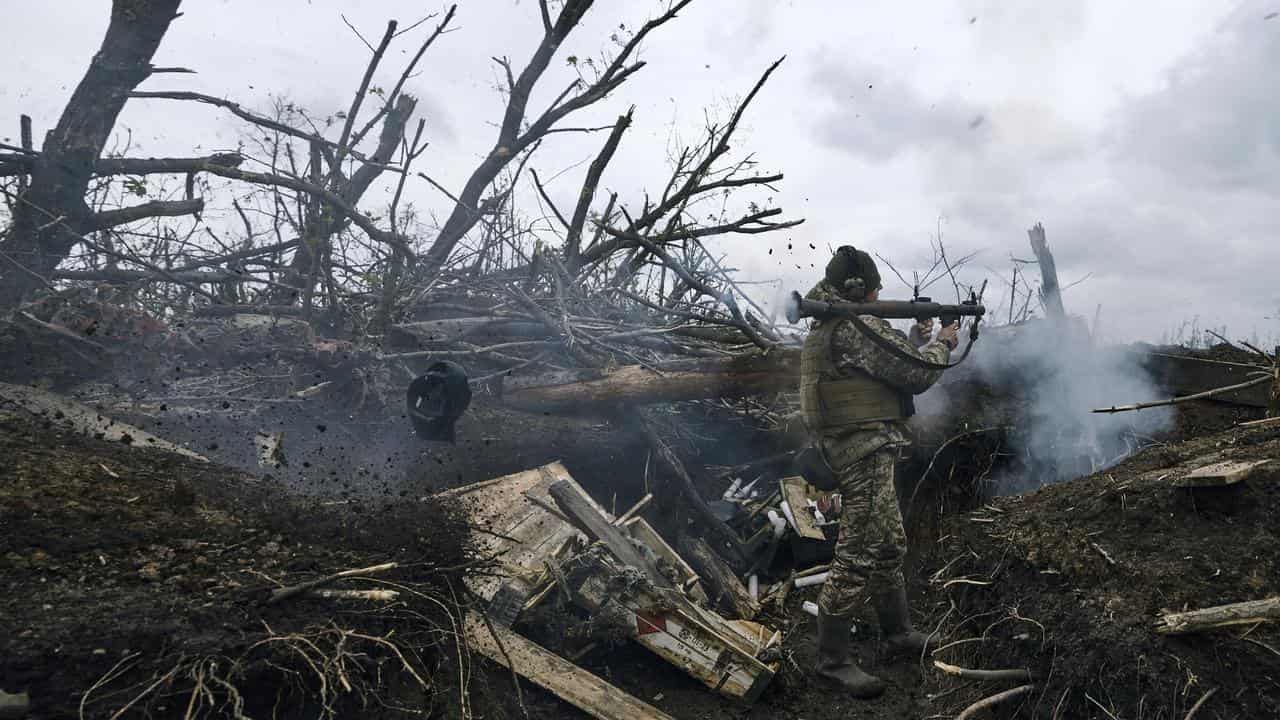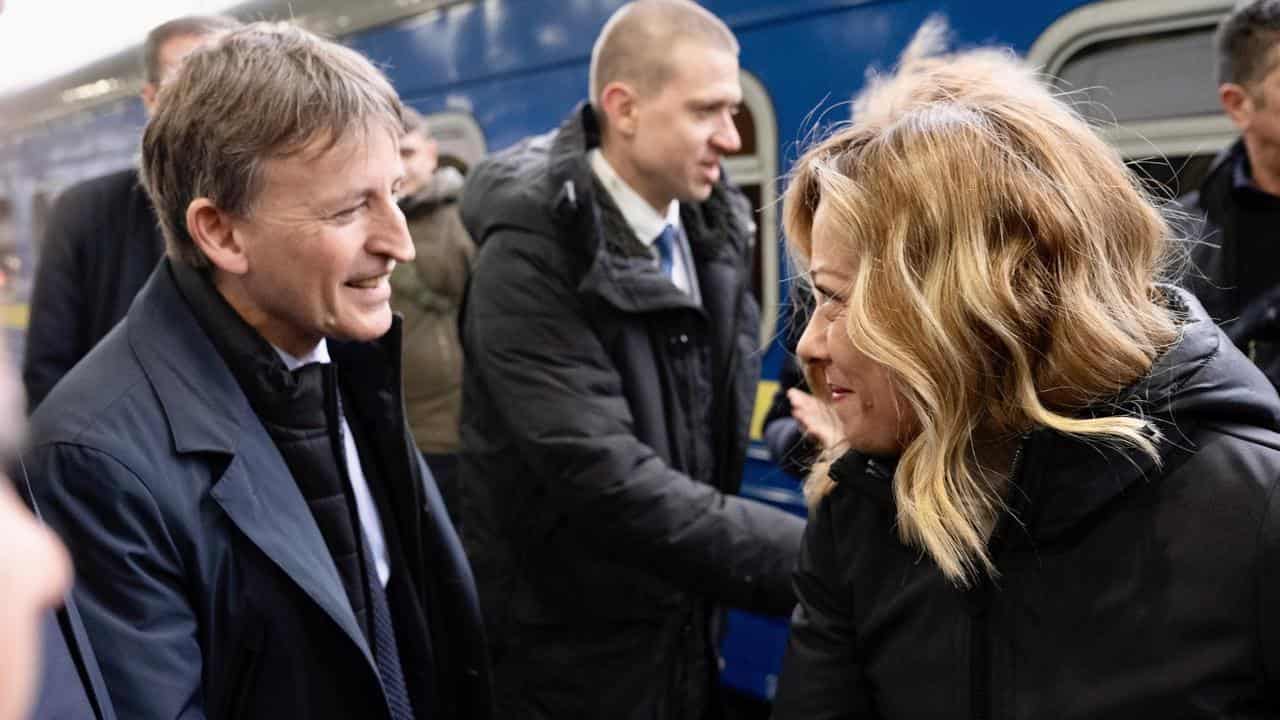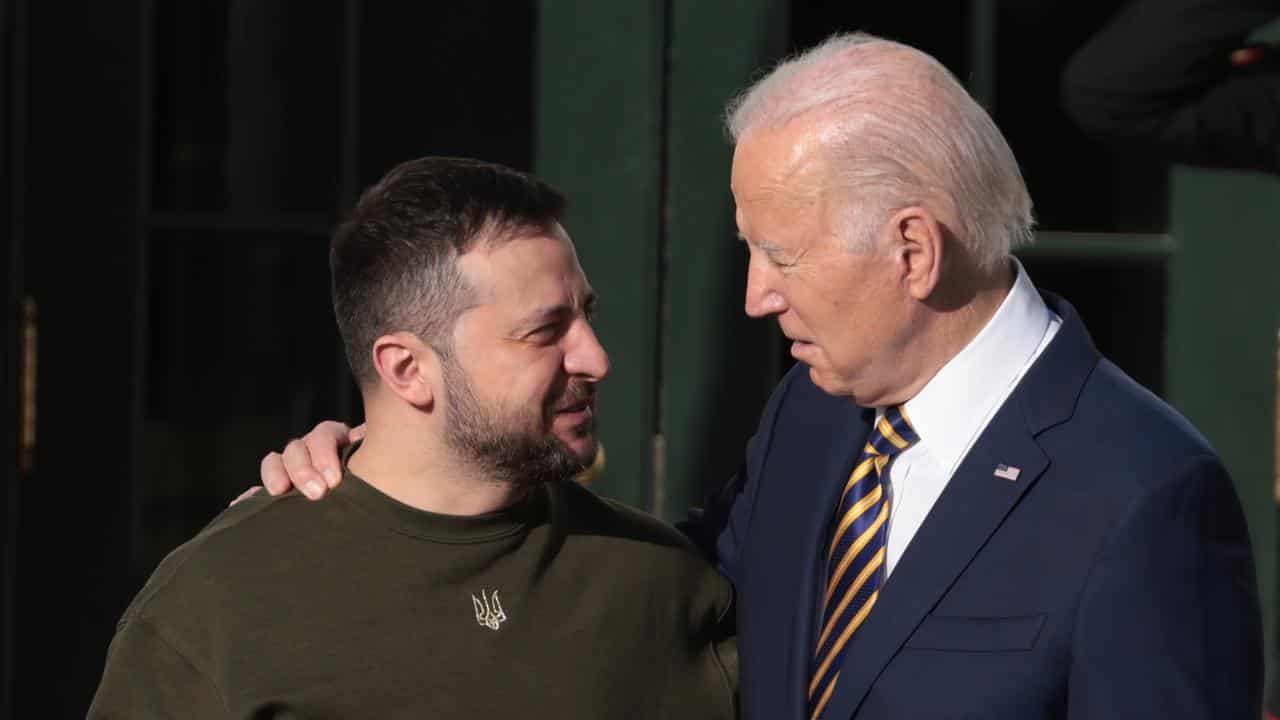
Four Western leaders have arrived in Kyiv to show solidarity with Ukraine on the second anniversary of Russia's full-scale invasion, which has cost tens of thousands of lives and ravaged the country's economy.
The prime ministers of Italy, Canada and Belgium - Giorgia Meloni, Justin Trudeau and Alexander De Croo - travelled with the president of the European Commission, Ursula von der Leyen, on an overnight train from neighbouring Poland.
Meloni and Trudeau are expected to sign security pacts with Ukrainian President Volodymyr Zelensky during their brief stay, in line with deals recently agreed with France and Germany that are worth billions of dollars.

Von der Leyen wrote on the social media platform X that she was in Kyiv "to celebrate the extraordinary resistance of the Ukrainian people". She added: "More than ever, we stand firmly by Ukraine. Financially, economically, militarily, morally. Until the country is finally free."
However, $61 billion in aid promised by US President Joe Biden is being blocked by Republicans in Congress, casting a long shadow over Kyiv's hopes of pushing back the much larger, better supplied Russian military.
Biden is due to take part in a video conference call of fellow leaders of the Group of Seven (G7) major democracies on Saturday, which will be chaired by Meloni, with Zelensky invited to join the discussion.

Meanwhile Ukrainian drones hit a major Russian steel factory overnight, causing a large fire, a Kyiv source said on Saturday.
The governor of Russia's Lipetsk region identified the plant as one in the city of Lipetsk, some 400 km north of the Ukrainian border, that is responsible for about 18 per cent of Russian steel output.
Raw materials from this enterprise are used to manufacture Russian missiles, artillery, drones. Therefore, it is a legitimate goal for Ukraine," the source said.
As the war enters its third year however, setbacks on the eastern front have left the Ukraine army looking vulnerable.
Seeking to maintain Western focus on Ukraine, even as the war between Israel and Hamas dominates headlines, Zelensky has warned that Russia, led by President Vladimir Putin, may not stop at Ukraine's borders if it emerges victorious.
The world has watched as initial Russian gains and a stunning Ukrainian counteroffensive in late 2022 have slowed into grinding, attritional trench warfare.
In scenes reminiscent of the battlefields of World War One, soldiers under heavy artillery fire are dying in their thousands, sometimes for a few kilometres of land.
Russia this month registered its biggest victory in nine months, capturing the eastern town of Avdiivka and ending months of deadly urban combat.
Yet Zelensky remained defiant ahead of the anniversary.
"I am convinced that victory awaits us," he told diplomats in Kyiv this week in an emotional address. "In particular, thanks to unity and your support."
Thousands of Ukrainian civilians have perished as well as tens of thousands of troops on both sides.
The scale of devastation in Ukraine is staggering.
A recent World Bank study said that rebuilding Ukraine's economy could cost nearly $500 billion. Two million housing units have been damaged or destroyed, and nearly 6 million people have fled abroad.
Russia's finances have proved resilient so far to unprecedented sanctions with its GDP expanding 3.6 per cent in 2023, although some Russia-based economists warned that this was driven by a leap in defence spending and that stagnation or recession loom.
That will not jeopardise Putin's victory in elections in March, which he is set to win by a landslide amid broad support for his performance and for the war, described by the Kremlin as a "special military operation".
In the last two years, authorities have cracked down hard on any form of dissent over the conflict. On February 16, Putin's most formidable domestic opponent, Alexei Navalny, died in an Arctic penal colony where he was serving a 30-year sentence.




